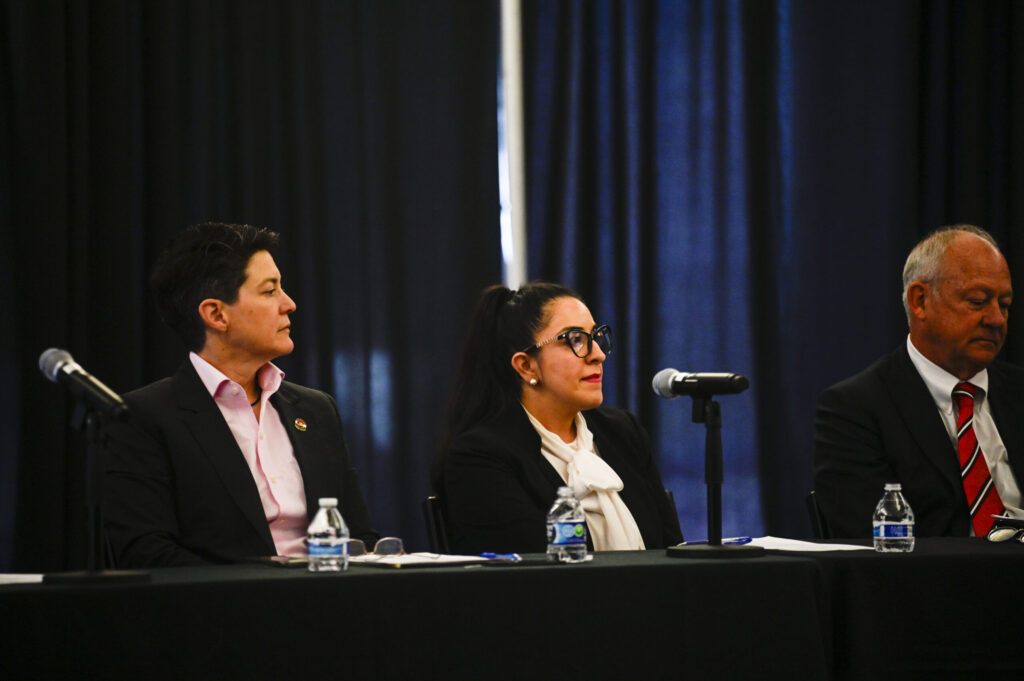Colorado Supreme Court to say whether self-defense in workplace is grounds for termination
The Colorado Supreme Court will decide whether employers may terminate workers for using self-defense in the workplace.
Last week, the justices agreed to answer the question posed by a federal judge who is deciding whether a former convenience store clerk’s wrongful discharge lawsuit should proceed to a jury trial. Although U.S. District Court Judge Nina Y. Wang indicated she had the power to interpret unclear legal terrain, she felt “most comfortable” with Colorado’s highest court defining the limits of Colorado law.
“Moreover, the Court notes that Plaintiff did originally file this case in state court, and if the case had stayed there, this question may very well have made its way up to the Colorado Supreme Court,” she wrote in a May 9 order. But because the defendant transferred the lawsuit to federal court, “there is no opportunity for the Colorado Supreme Court to answer this question” absent Wang’s request.
Mary Ann Moreno was behind the register at a Westminster Circle K store when a man holding two hunting knives asked if she could give him cigarettes for free. In Moreno’s telling of the October 2020 encounter, the robber attacked her while she was trapped behind the counter, prompting her to defend herself. In the process, she made contact with her assailant.
After reviewing the security footage, Circle K managers did not believe Moreno acted in self-defense. Instead, she stepped toward the shoplifter and briefly grabbed his arm and shirt as he reached for the merchandise. Those actions violated the company’s “Don’t Chase or Confront” policy for shoplifters, and Circle K terminated her employment.
Moreno filed suit against her former employer, alleging it terminated her in violation of Colorado’s public policy — namely, the law’s recognition of a right to self-defense. Initially, Wang sided with Circle K, finding Colorado law did not support the idea that an at-will employee may not be fired for exercising self-defense in the workplace.
However, a three-judge panel for the U.S. Court of Appeals for the 10th Circuit believed Wang had looked at the case backwards. Instead of having a federal judge interpret an unclear area of state law implicating the rights of workers, explained Judge Gregory A. Phillips, it would have made more sense for Wang to first answer whether the evidence showed Moreno, in fact, was using self-defense at all, then whether Circle K fired her because of it.
“Though within its power, the district court fielded an uncertain state-law question without addressing two (fact-based) arguments that may have obviated the need for federal predictions about the meaning of state law,” Phillips wrote in the panel’s Dec. 31 order.
The panel directed Wang to evaluate whether the evidence conflicted to the point where a jury trial would be necessary to decide Moreno’s claim.
After the case returned to Wang in January, Moreno asked her to invite the Colorado Supreme Court to answer the question of whether state policy permits employers to fire workers for using self-defense, using a process known as “certification.”
“The question to be certified impacts thousands of workers across the state of Colorado who, like Ms. Moreno, may find themselves the victim of an armed robbery at any point in time,” wrote her attorneys.
Circle K downplayed the importance of the question, arguing it was undisputed Moreno was not acting in self-defense. Moreover, the managers who fired her did not believe her conduct amounted to self-defense.
But Wang was not so sure.
“When the parties present different versions of events and support their positions with conflicting evidence, it is up to the jury, not the Court, to review the evidence and draw conclusions,” she wrote, adding that jurors could find Moreno was using self-defense.
Further, Wang did not place significant weight on the fact that Moreno’s managers did not fire her for acting in self-defense. If Circle K’s “Don’t Chase or Confront” policy prohibits employees from acting in self-defense, and an employee is fired for violating that policy, then it is possible they were fired for using self-defense.
“For a more straightforward analogy, suppose an employer had a workplace policy prohibiting its employees from serving on a jury and terminated an employee for attending her court-ordered jury service,” Wang explained. “The employer surely would not be permitted to avoid liability on the employee’s subsequent wrongful termination claim by simply stating that the employee was terminated for violating a workplace policy.”
Therefore, she concluded the possibility of bringing the case to a jury trial hinged on the question she already attempted to answer: Does Colorado law prohibit employers from firing someone for using self-defense in the workplace? If it does, Moreno’s claims would go to trial; if it does not, Circle K likely prevails.
Three days after Wang invited the Colorado Supreme Court to weigh in, the justices agreed to take the case.
The case is Moreno v. Circle K Stores, Inc.













